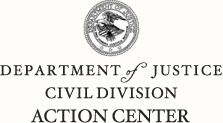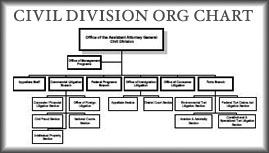

- Civil Division Home
- About the Division
- Meet the Principal Deputy Assistant Attorney General
- Press Room
- Selected Documents & Forms
- Structured Settlement Brokers
- Compensation Programs
- Employment
- Civil Division FOIA
- Contact the Division
- Consumer Protection Branch
- Justice for All Act (2004) Case Notifications
- Employment
- Links
- Contact the Branch
- Documents & Forms
- Odometer
- Tobacco Litigation
- Combating Immigration Services Scams


The Consumer Protection Branch (CPB) was established in 1971 in response to considerable Legislative and Executive Branch interest in consumer protection. CPB’s small, specialized group of litigators focuses its law practice on national consumer protection statutes. Many of these statutes provide for both civil and criminal remedies. As a result, CPB attorneys posses unique expertise on a range of consumer protection issues in both civil and criminal contexts.
CPB enforces and defends the consumer protection programs of four client agencies: the Food and Drug Administration (FDA), the Federal Trade Commission (FTC), the Consumer Product Safety Commission, and the Department of Transportation's National Highway Traffic Safety Administration. By regulation, 28 C.F.R. § 0.45(j), CPB is responsible for litigation under the principal Federal consumer protection laws these agencies enforce. These laws include the Federal Food, Drug, and Cosmetic Act; the odometer tampering prohibitions of the Motor Vehicle Information and Cost Savings Act; the Consumer Product Safety Act; and a variety of laws administered by the FTC, such as the Fair Debt Collection Practices Act.
CPB’s creation has provided ready and effective representation to agencies charged with consumer protection statute administration. Moreover, in the criminal arena, CPB has been highly successful in prosecuting cases that it has developed in coordinated efforts with client agencies. CPB's nationwide enforcement efforts are reflected in prosecutions involving, for example:
- abusive and overreaching debt collection practices;
- use of fraud and bribery to obtain FDA approval for drugs and devices;
- illegal distribution of pre-controlled substance drugs (such as steroids and GHB before those drugs became controlled substances), which threaten the health of those who use them;
- covert distribution of unapproved bulk animal drugs that endanger the nation's food supply;
- "food fraud," in which juices, seafood, or other foods are stretched with cheap fillers but sold as 100% pure, high-value foods;
- odometer frauds, in which automobile mileages are falsified to fraudulently inflate market values and to conceal potentially unsafe vehicles; and
- violations of FTC-promulgated trade regulation rules, such as the Franchise Rule, which prevents fraud in the sale of business opportunities.







